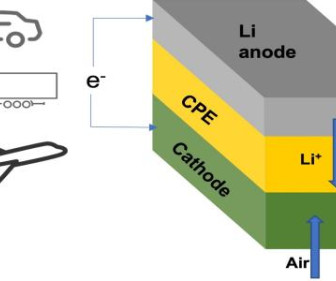Researchers develop room-temp 1,000+ cycle rechargeable solid-state lithium-air battery
Green Car Congress
FEBRUARY 8, 2023
Researchers from the Illinois Institute of Technology (IIT), Argonne National Laboratory, and the University of Illinois at Chicago have developed a room-temperature solid-state lithium-air battery that is rechargeable for 1,000 cycles with a low polarization gap and can operate at high rates. Ngo, Paul C.











Let's personalize your content